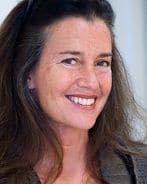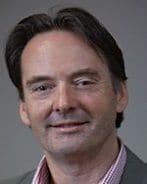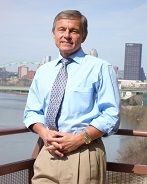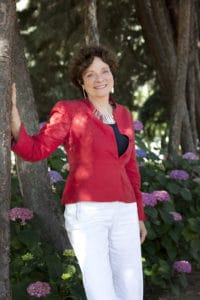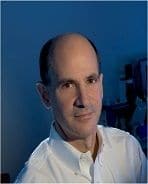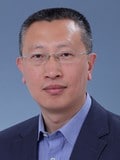Editor-in-Chief
Professor Nadia Rosenthal
Scientific Director, The Jackson Laboratory, USA
Chair in Cardiovascular Science & Scientific Director, Imperial College London, UK
Scientific Head, EMBL Australia, Australia
Born in the United States, Nadia Rosenthal was awarded a PhD in 1981 from Harvard Medical School and trained as a postdoctoral fellow at the National Institutes of Health. After holding academic research posts in Boston at Children’s Hospital and Boston University School of Medicine she moved to the Cardiovascular Research Center at Harvard Medical School, where she directed a biomedical research laboratory at the Massachusetts General Hospital. She co-edited the definitive text Heart Development and served for a decade on the editorial staff at the New England Journal of Medicine, where she was Consultant of Molecular Medicine and editor of the Molecular Medicine series.
Professor Rosenthal’s research focuses on the developmental genetics of heart and skeletal muscle, the molecular biology of ageing and the role of growth factors, stem cells and the immune system in tissue regeneration. She is an EMBO member, recipient of the Ferrari-Soave Prize in Cell Biology, and Doctors Honoris Causa from the Universite Pierre et Marie Curie in Paris and University of Amsterdam. She also holds a Chair in Cardiovascular Science at Imperial College London. She has served on numerous international grant review committees and advisory panels and has coordinated several major EU consortia on mouse genetics and disease models. She is a Founding Editor of Disease Models and Mechanisms and Editor-in-Chief of Differentiation.
Professor Rosenthal is a member of the Australia and New Zealand Society for Cell and Developmental Biology, for whom she designed the prestigious ANZSCDB Presidents Medal. She has been a faculty member of the Australian Developmental Biology Workshop and is a Visiting Professor at University of Western Australia. She currently holds an NHMRC Australia Fellowship.
Professor Rosenthal spearheaded the election of Australia to EMBL as its first Associate Member and serves as Scientific Head of EMBL Australia.
Deputy Editor
Director, Australian Regenerative Medicine Institute, Australia
Faculty of Medicine, Nursing & Health Sciences, Monash University, Australia
Peter D. Currie received his PhD in Drosophila genetics from Syracuse University, New York, USA.
He undertook postdoctoral training in zebrafish development at the Imperial Cancer Research Fund (now Cancer Research UK) in London, UK. He has worked as an independent laboratory head at the UK Medical Research Council Human Genetics Unit in Edinburgh, UK and the Victor Chang Cardiac Research Institute in Sydney, Australia where he headed a research programme focused on skeletal muscle development and regeneration.
His work is centred on understanding how the small freshwater zebrafish is able to build and regenerate both skeletal and cardiac muscle.
In 2016 he was appointed Director of the Australian Regenerative Medicine Institute at Monash University in Melbourne, Australia. He is a recipient of a European Molecular Biology Organization Young Investigators Award and a Wellcome Trust International Research Fellowship and currently is a Principal Research Fellow with the National Health and Medical Research Council in Australia.
Associate Editors
Deputy Director, McGowan Institute for Regenerative Medicine, The University of Pittsburgh, USA
Dr. Stephen Badylak, DVM, PhD, MD is a Professor in the Department of Surgery, and Deputy Director of the McGowan Institute for Regenerative Medicine at the University of Pittsburgh.
Dr. Badylak has practiced both veterinary and human medicine, and is now fully engaged in research. Dr. Badylak began his academic career at Purdue University in 1983, and subsequently held a variety of positions including service as the Director of the Hillenbrand Biomedical Engineering Center from 1995-1998.
Dr. Badylak holds over 60 U.S. patents, 300 patents worldwide, has authored more than 350 scientific publications and 40 book chapters, and has recently edited a textbook entitled “Host Response to Biomaterials”. He has served as the Chair of several study sections at the National Institutes of Health (NIH), and is currently a member of the College of Scientific Reviewers for NIH. Dr. Badylak has either chaired or been a member of the Scientific Advisory Board to several major medical device companies. More than eight million patients have been treated with bioscaffolds developed in Dr. Badylak’s laboratory.
Dr. Badylak is a Fellow of the American Institute for Medical and Biological Engineering, a member of the Society for Biomaterials, a charter member of the Tissue Engineering Society International, a past president of the Tissue Engineering Regenerative Medicine International Society (TERMIS) and a Founding International Fellow of TERMIS.
Director, Baxter Laboratory for Stem Cell Biology, Stanford University School of Medicine, USA
Professor Helen M. Blau, Ph.D. is the Donald E. and Delia B. Baxter Foundation Professor and Director of the Baxter Laboratory for Stem Cell Biology at Stanford University. She received her B.A. from the University of York, England, Ph.D. from Harvard University and was a postdoctoral fellow at UCSF. Blau’s research area is regenerative medicine. She is world renowned for her work on nuclear reprogramming and demonstration of the plasticity of cell fate using cell fusion, which provided the scientific underpinnings for induced pluripotent stem cells. She has identified regulators that increase strength through rejuvenating aged muscle stem cell function; and a novel role for telomeres in cardiac failure. She is an elected member of the American Academy of Arts and Sciences, Pontifical Academy of Sciences, fellow of the American Association for the Advancement of Science, and fellow of the National Academy of Inventors. Blau is a member of National Academy of Medicine and the National Academy of Sciences.
Group Leader, Medical Research Council Centre for Regenerative Medicine, University of Edinburgh, UK
Stuart Forbes (SF) is Professor of Transplantation and Regenerative Medicine, at the University of Edinburgh. Stuart’s research focuses on how the chronically damaged liver regenerates and how these mechanisms process becomes deranged in liver and bile duct cancer. In particular, SF’s research looks at how the epithelial cells in the liver (hepatocytes and biliary cells) interact with the inflammatory cells of the liver during injury and regeneration.
SF is Director of the MRC Centre for Regenerative Medicine, (http://www.crm.ed.ac.uk/) which houses 230+ scientists and clinicians. SF is Director of the UK wide UKRMP Hub for engineering and exploiting the stem cell niche (http://www.ukrmp.org.uk/hubs/niche/) which aims to exploit the biology of stem cell niches for translational benefit. SF is a consultant Hepatologist at the Scottish Liver Transplant Unit and has clinical interests in liver failure, cancer and liver transplantation.
Professor Eric Olson
Director, Hamon Center for Regenerative Science and Medicine, University of Texas Southwestern Medical Center, USA
Eric Olson founded the Department of Molecular Biology at UT Southwestern Medical Center, where he is currently Professor and Chair. He holds the Robert A. Welch Distinguished Chair, the Pogue Chair in Cardiac Birth Defects, and the Annie and Willie Nelson Professorship in Stem Cell Research. He also directs the Hamon Center for Regenerative Science and Medicine and the Wellstone Center for Muscular Dystrophy Research. Olson and his trainees discovered many of the genes that control heart and muscle development and disease. Discoveries from his laboratory have illuminated the fundamental principles of tissue and organ formation and have provided new concepts in the quest for cardiovascular therapeutics. His most recent work has revealed a promising strategy for correction of Duchenne muscular dystrophy using CRISPR gene editing.
Dr. Olson has published over 600 papers that have been cited over 90,000 times. He is a member of the U.S. National Academy of Sciences, the National Academy of Medicine, and the American Academy of Arts and Sciences. He has co-founded multiple biotechnology companies to advance the discoveries from his laboratory toward the development of innovative therapies for heart and muscle disease.
Director, The Glenn Laboratories for the Biology of Aging, Stanford University School of Medicine, USA
Dr. Rando Professor of Neurology and Neurological Sciences and Founding Director of the Glenn Center for the Biology of Aging at Stanford University. He is also Deputy Director of the Stanford Center on Longevity. Dr. Rando directs the Center for Tissue Regeneration, Repair, and Restoration (CTR3), a program in regenerative medicine combining expertise in stem cell biology and bioengineering, at the VA Palo Alto Health Care System where he is also Chief of Neurology
Dr. Rando received his AB, MD, and PhD degrees from Harvard University and then completed a residency in neurology at UCSF and postdoctoral training at Stanford. Dr. Rando’s research focuses on stem cell biology, with particular interest in stem cell aging and tissue engineering. He has pioneered the field of systemic factors as regulators of cellular aging based upon seminal studies done in his laboratory using the technique of heterochronic parabiosis. This is has led to the identification of factors in the blood that either promote or suppress stem cell activity. Work in Dr. Rando’s laboratory has also provided the foundation for studies of the epigenetics of stem cell function and stem cell aging, leading to the concept of “epigenetic rejuvenation” by which interventions (e.g., dietary, pharmacologic, parabiotic) may slow or even reverse the aging process.
Dr. Rando has received numerous awards including the “Breakthroughs in Gerontology” Award from the American Federation for Aging Research, the NIH Director’s Pioneer Award, and a Transformative Research Award from the NIH. Dr. Rando is a member of the National Academy of Medicine and a Fellow of the American Association for the Advancement of Science.
Professor Qi Zhou
The State Key Laboratory of Stem Cell and Reproductive Biology, Institute of Zoology, Chinese Academy of Sciences, People’s Republic of China
Professor Qi Zhou received his PhD in Histology and Embryology from Northeast Agricultural University, China, in 1996. He worked as a postdoctoral fellow and then an associate professor position at the Institute of Developmental Biology, Chinese Academy of Sciences (CAS), from 1997 to 1999. He also worked as a postdoctoral fellow and project leader at the French National Institute for Agricultural Research (INRA) from 1999 to 2002. He joined the Institute of Zoology, CAS, in 2002 and has been working as a professor since then. He was elected as a CAS Member in 2015, and a TWAS (The World Academy of Sciences) Fellow in 2018. Prof. Zhou’s research interests cover stem cell, reproductive and developmental biology, and he is also dedicated to promoting the application of stem cells to clinical use. His main scientific achievements include: produced world-first cloned rat; obtained the first healthy animal derived from induced pluripotent stem cells; established mammalian haploid embryonic stem (ES) cells of model species; generated world-first mammalian diploid hybrid ES cells of phylogenetically distal species; established Beijing Stem Cell Bank and the clinical-grade stem cell lines to promote the clinical application of stem cells. Professor Zhou has been awarded many prizes and honors, including the Second Class Award of National Natural Science Award of China, the TWAS Prize for Biology, and the Prize for Scientific and Technological Progress of Ho Leung Ho Lee Foundation.

